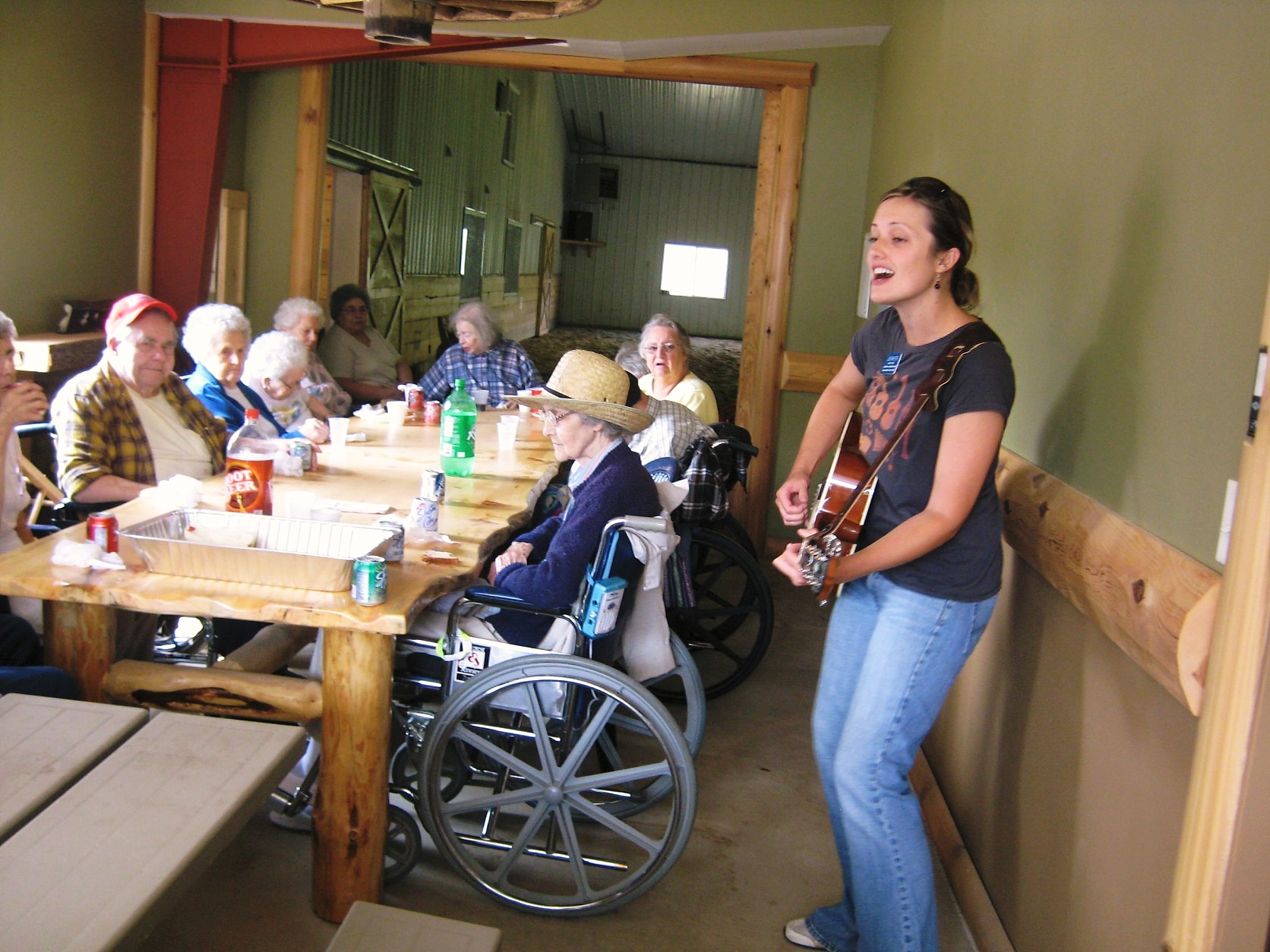The Legacy Farm experience as a volunteer gives more than it takes. The reward of an excited child, a wowed adult, and the social aspect make it all worth the effort.
GUIDELINES FOR VOLUNTEERS
-
Please remember the “golden rule” applies when working with people; “Treat others as you would like to be treated.” Here are a few tips for making each person’s experience with Legacy Camps a positive one:
-
When speaking with riders, parents, volunteers and staff members, make eye contact, use normal conversational tone and if you don’t understand what has been said to you, ask for further clarification.
-
If a concern or disagreement arises, please feel free to ask for assistance in resolving the issue.
-
If there is a question regarding an individual rider and their special needs as related to the therapeutic riding experience, you may ask the instructor in private.
PLEASE RESPECT THE RIDER’S RIGHT TO PRIVACY. CONFIDENTIALITY REGARDING RIDERS AND THEIR FAMILIES IS A MUST!
-
Arrive for class 15 minutes early. If you are unable to attend a class you have signed up for please call the director with enough advance notice so that they may schedule a replacement for you. Keep cancellations to a minimum. If you are unable to attend a scheduled class, a rider may be unable to ride that day.
-
Your clothing should be neat and practical. (i.e. Fully enclosed study shoes, no dangling or loose jewelry, clothes appropriate for the weather—long pants preferred.)
-
Legacy Camps reserves the right to reassign or terminate any volunteer whose behavior conflicts with the mission of Legacy Camps. Every opportunity will be made to work with volunteers.
NARHA’s Information For Volunteers
Excerpted and adapted from NARHA’s “Considerations When Serving People with Disabilities:”
-
A person with a disability is an individual first and is entitled to the same dignity, respect, and considerations expected by anyone else.
-
Relax and let the person with the disability put you at ease.
-
Treat adults as adults. Only call an adult person with a disability by first name after asking for the privilege.
-
Do not pat a person with a disability on the head, shoulder, or any other part of their body.
-
Generally, you may provide to a person with a disability if asked. Or you may offer assistance; if it is declined, however, refrain from providing any assistance.
-
When assisting an individual with a disability always ask how you can help. Do not take over.
-
Always address the person with a disability directly. Do not speak about a person with a disability as though he/she were not present.
People First Language:
-
The individual should always be placed before the disability. It is a “person with a disability,” not a “disabled person.”
-
Never refer to a person by his/her disability (for example, “a paraplegic,” or “a blind person.” The accepted terminology is a “person who has paraplegia,” a “person who is blind,” etc.
-
People are not “confined” or “bound” to wheelchairs. They “use” these devices for mobility and to enhance their freedom. It is more appropriate to say “an individual who uses a wheelchair.”
-
Completely avoid emotionally laden terms such as “suffering with a disease,” “afflicted with,” and “burdened by.” A person with a disability may have an illness or may be challenged by a condition, but one should never assume that a person is suffering, burdened, or afflicted.
-
When writing or speaking about individuals with disabilities always focus on ability, accomplishment, and quality of life.
-
It used to be common to use individuals with disabilities (in fundraising appeals, for example) to evoke sympathy and compassion by dwelling on how disadvantaged they were. Especially when fundraising for in programs that serve people with disabilities, it can be a fine line between explaining the need for support and being tasteless.
-
Avoid using “us” and “them” language when speaking of people with disabilities versus people without disabilities. Statistics have shown that most people will become people with a disability at some point in their lives. We are all people first.
How to Help Effectively:
-
Do not make assumptions about what a person can or cannot do. A person with a disability is the best judge of what he/she can do unless substantially cognitively impaired.
-
Do not push a person’s wheelchair, grab an arm, or try to help without asking first.
-
When speaking to a person with a disability who uses a wheelchair find yourself a chair, or crouch down at a comfortable distance so that you can converse on the same level.
-
Respect personal space, but when a person with a disability asks you for help, you may be directed to hold, lift, or otherwise assist in a very specific way.
-
When an assistant accompanies an adult with a disability, address the person with the disability directly, unless you are asked to do otherwise.
-
Never move or touch someone’s crutches, walker, cane, service animal, or other mobility aid without permission.
-
Do not make contact with a person’s service animal unless you ask the owner first. The animal has a job to do and must concentrate on their work. They are not pets.
Would you like to visit the NARHA Web site and learn more?
North American Riding for the Handicapped Association (NARHA)

